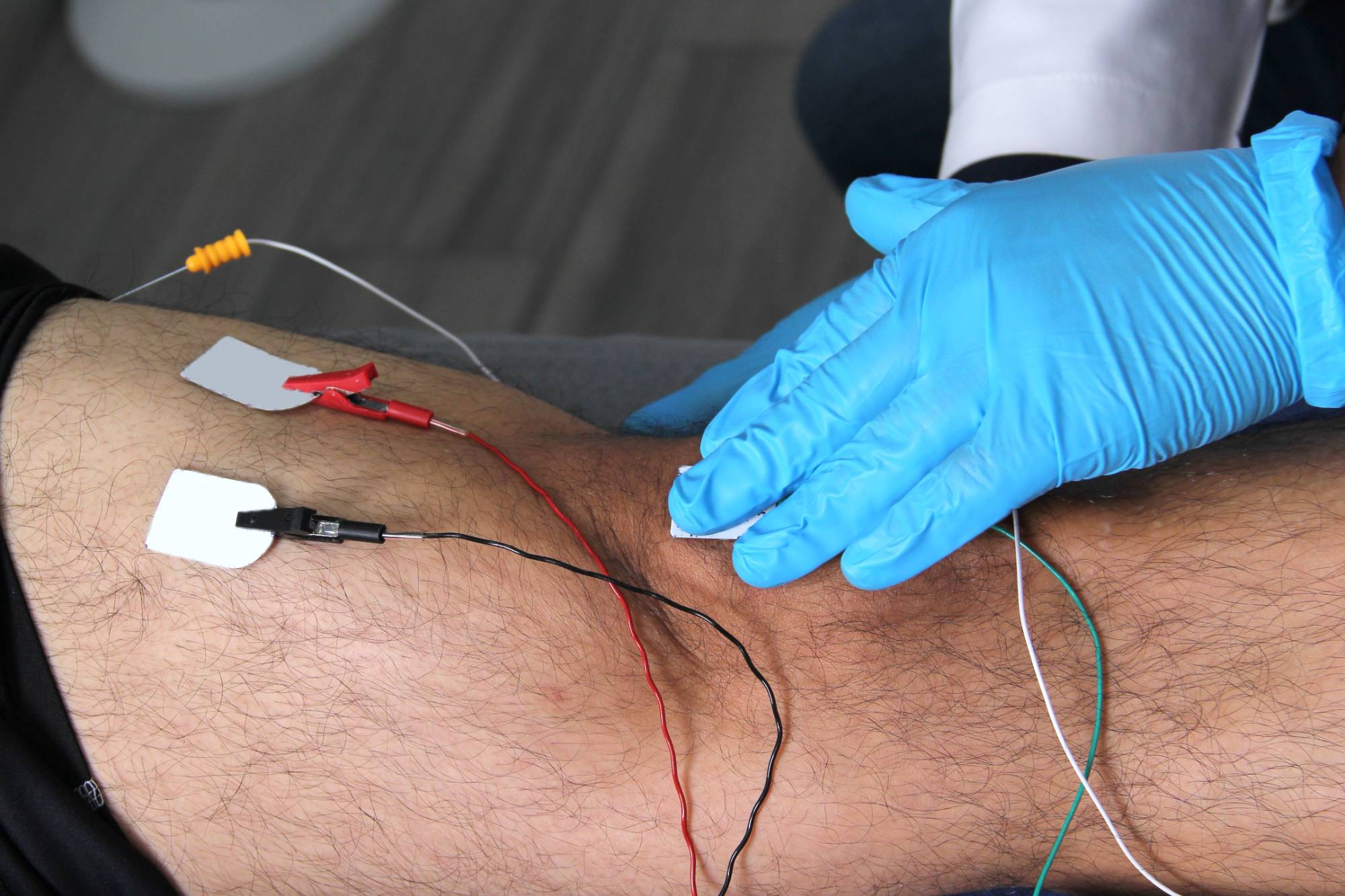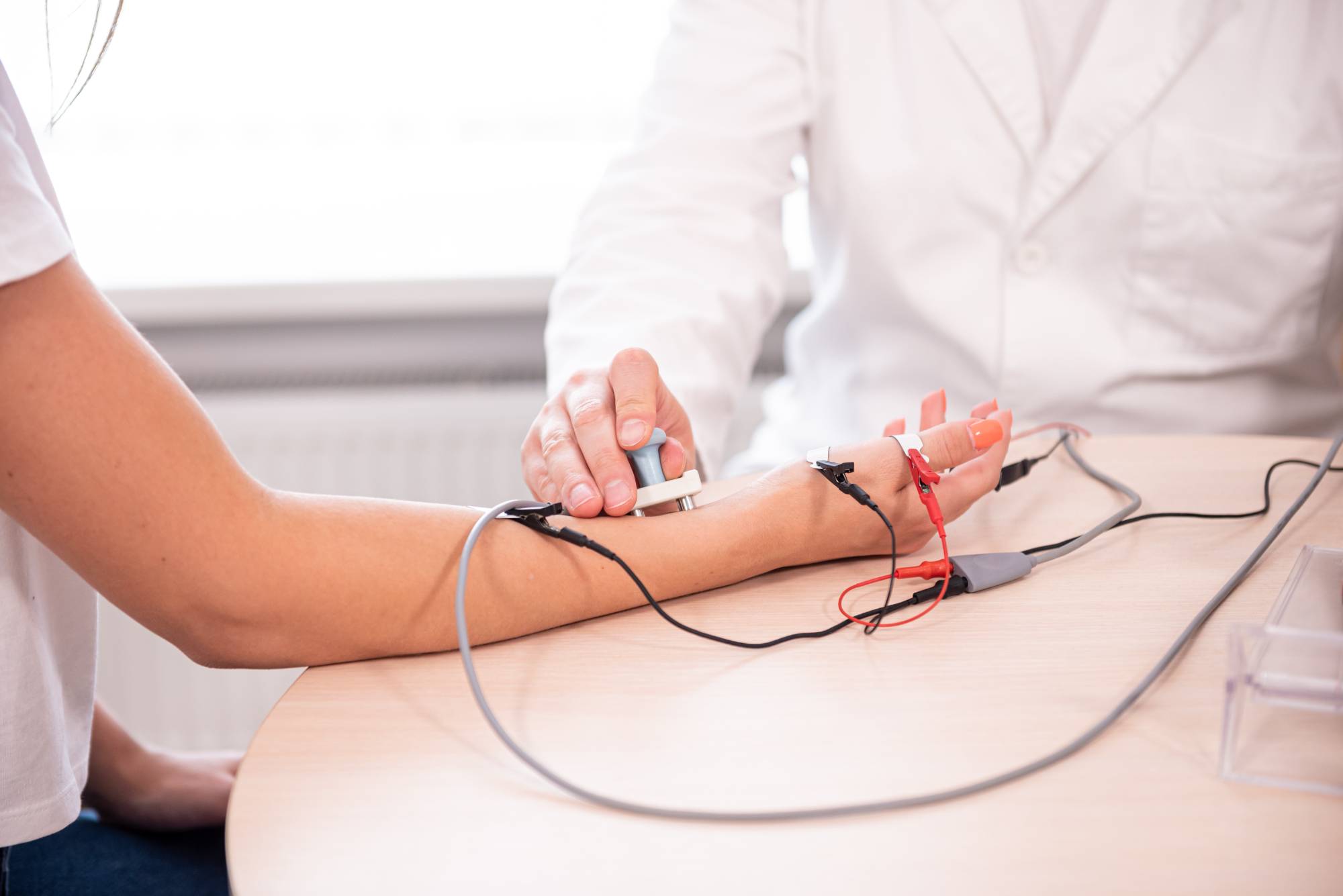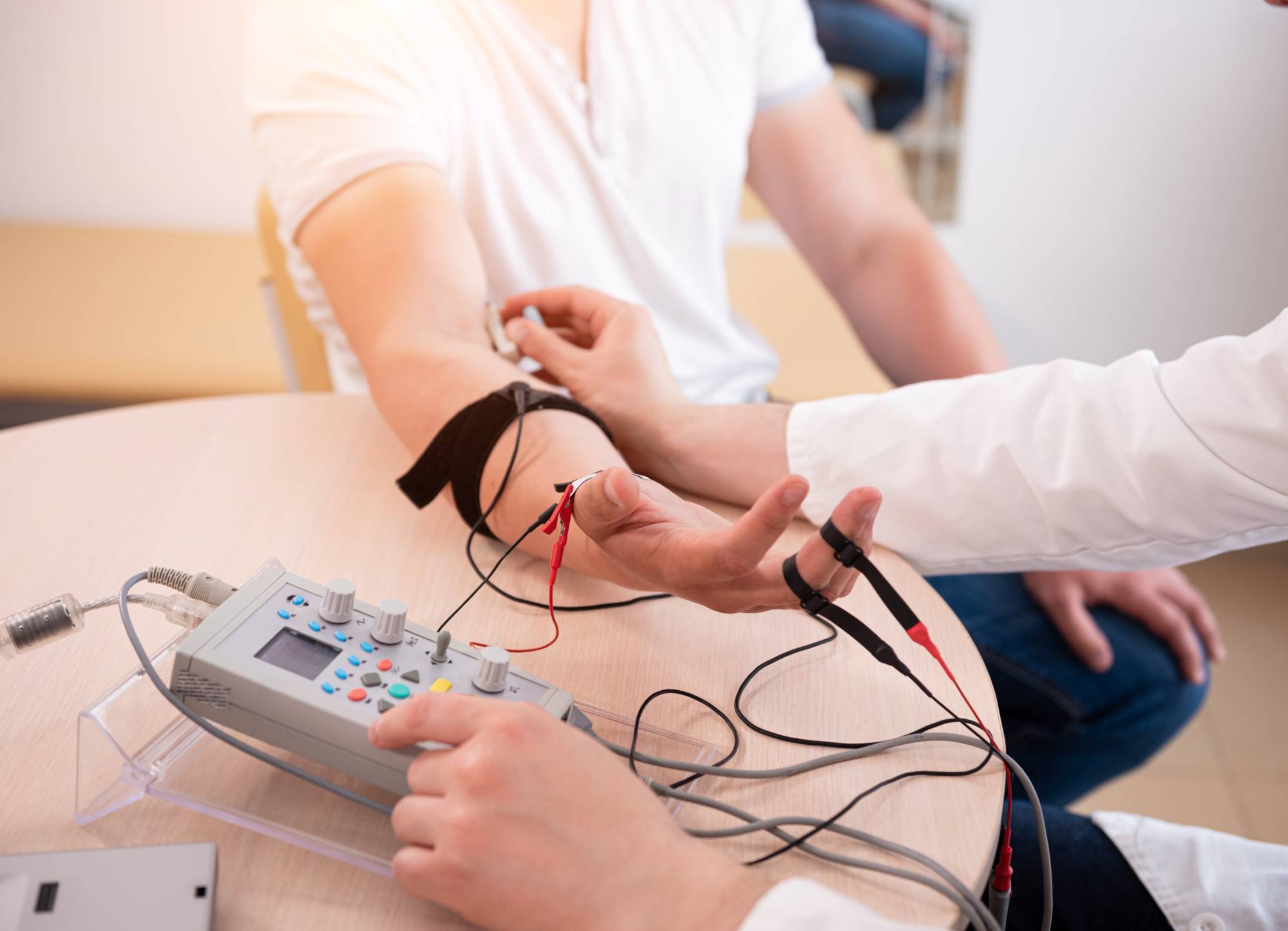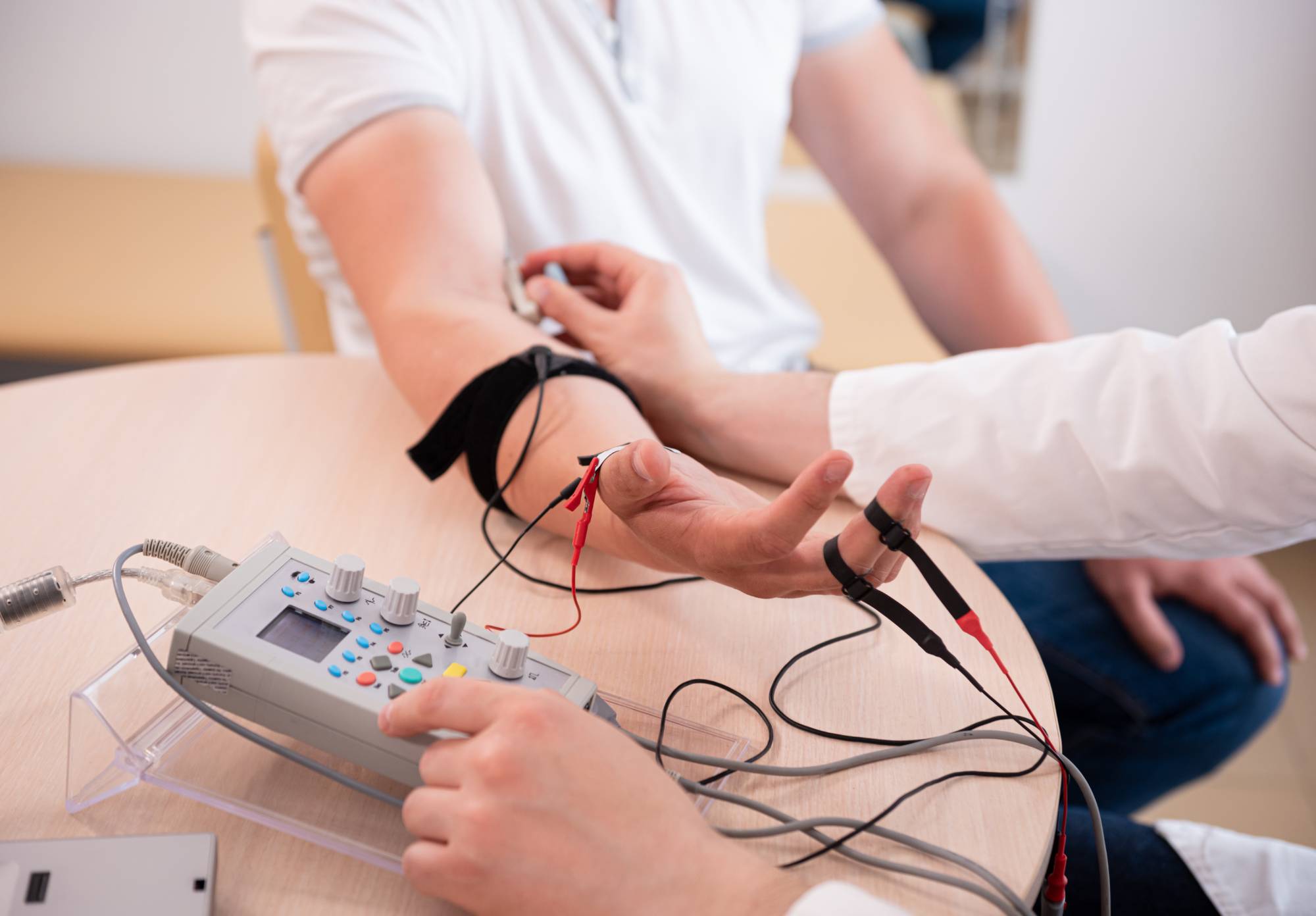Advanced electromyography testing that pinpoints exactly what’s causing your symptoms so you can move forward with confidence.

Reviews

You’ve been dealing with numbness, tingling, or muscle weakness long enough. EMG testing gives you the precise diagnosis you need to understand what’s happening in your nerves and muscles.
Instead of guessing or trying treatments that might not work, you get clear data about nerve function and muscle response. This means your doctor can create a treatment plan that actually addresses the root cause of your symptoms.
No more wondering if it’s carpal tunnel, a pinched nerve, or something else entirely. EMG diagnostic testing shows exactly where the problem is and how severe it might be, so you can make informed decisions about your care.
At NY Spine Medicine, we have been providing comprehensive neurological testing and spine care to patients throughout Florida. Our team specializes in advanced diagnostic procedures that help identify the source of nerve and muscle problems.
We focus on thorough evaluation and clear communication, ensuring you understand your test results and what they mean for your treatment options. With years of experience in EMG and nerve conduction studies, our medical team knows how to get accurate results while keeping you comfortable during the process.

Your EMG testing appointment starts with a discussion about your symptoms and medical history. We explain exactly what will happen during the test and answer any questions you have.
During the electromyography portion, small electrodes are placed on your skin to measure electrical activity in your muscles. For the nerve conduction study, mild electrical pulses test how well your nerves send signals. Most patients describe the sensation as brief and tolerable.
The entire process typically takes 30-60 minutes depending on which nerves and muscles need testing. You’ll get your results immediately after the test, along with a clear explanation of what the findings mean and recommended next steps for treatment.

Ready to get started?
Your EMG testing includes both electromyography and nerve conduction studies to give a complete picture of your neurological function. This comprehensive approach helps diagnose conditions like carpal tunnel syndrome, peripheral neuropathy, radiculopathy, and muscle disorders.
The testing evaluates nerve transmission speed, muscle response patterns, and identifies areas where nerves might be compressed or damaged. You’ll receive detailed results that clearly show which nerves or muscles are affected and the severity of any problems found.
All testing is performed using advanced equipment that provides precise measurements while minimizing discomfort. The results help determine whether your symptoms are related to nerve compression, muscle disease, or other neurological conditions that require specific treatment approaches.

New York:
Florida:
Support